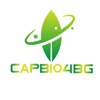Vegetable crops production
|
Course title: |
Vegetable crops production |
|
|
Course code: |
LGVCP |
|
|
ECTS: |
5 |
|
|
In-class hours |
Lectures: |
30 |
|
Laboratory work/Tutorials: |
30 |
|
|
Self-preparation hours |
Practical training: |
15 |
|
Other: |
50 |
|
|
Total hours: |
125 |
|
|
Language: |
English |
|
|
Study cycle: |
Bachelor, Master, PhD |
|
|
Semester: |
Winter & Summer |
|
|
Faculty: |
Faculty of Horticulture and Viticulture |
|
|
Name of the lecturer(s): |
Prof. Nikolay Panayotov, PhD |
|
|
Mode of delivery: |
Face-to-face, distance learning or a combination of both |
|
|
Prerequisites: |
Knowledge of botany, physiology, biochemistry, genetic, herbology, general agriculture, plant protection |
|
|
Learning outcomes of the course unit: |
In the course of Vegetable crops production, the main problems concerning the species diversity and biological characteristics of vegetable crops and the relationship with specific technological practices are studied. The basic elements of plant biology about different crops are discussed. On the morphological characteristics of the plant is emphasized also. About each economically important vegetable crop, the morphological description and the biological requirements to the environmental conditions are studied too. The propagation issues have been included in the program. The suitable cultivars and varieties for different production directions and branches of vegetable crops are described and recommended to the students. Special attention is paid to the biological features and technological agri-practices and their relation to reducing the attack or protection against weeds, diseases and pests. In this context, the significance of tolerance and resistance of different varieties or cultivars is ensured in this course. Considerable attention is paid to the specific technological moments in the growing process of the main. The achievements in technological development and applying the modern agro-technological approaches and methods in vegetable growing with specifics to the different important vegetable crops are considered. The new perspectives in the technologies and its application in practice are underlined. After graduation from the course the students will be able to organize the production of vegetable crops with high efficiency, according to the environmental conditions of different regions and to apply appropriate and modern ways and methods of production. The studied topics are interrelated and complementary. Attention is paid by both lectures and practical exercises about acquisition of permanent theoretical knowledge, practical skills, and techniques of specialists. Bases for study of this course are the knowledge from botany, systematic, physiology, biochemistry, genetics, herbology, general agriculture, plant protection, breeding. |
|
|
Course contents: |
Lectures 1. Importance, development, status and perspectives of vegetable crops production. Preconditions for the development of the branch. Nutrition and biological significance of vegetables. /1 hour/ 2. Origins centers on the vegetable species. Classifications of vegetable crops – botanically, by life cycle, by the productive organs and parts. /1 hour / 3. Biological requirements of the vegetable crops. Requirements to temperature; light; moisture and water; nutrition regime and air regime. Agri-technological practices and means about their regulation. /3 hours/ 4. Seeds propagation of vegetable crops. Quality of seeds and their pre-sowing treatments. Features of the sowing. Vegetative propagation. Grafting of the vegetable crops. /2 hours / 5. Theoretical bases of seedling production of vegetable crops. Substrates about growing of vegetable seedling. Technological decisions and methods of seedling growing. /2 hours/ 6. Tillage in the vegetable growing. The basic and pre-sowing tillage and the specifics moment of cultivation during vegetation. /1 hour/ 7. Theoretical bases and specific particularities of the fertilization of vegetable crops in relation to different directions and branches of production, biological responses of the plants and quality of production. Applying the plant growth regulation in vegetable crops production. /1 hour/ 8. Harvesting, sorting, packaging and qualification of vegetables. /1 hour/ 9. Theoretical bases of crop rotation and mix crops in vegetable crop production – biological, soil, climatic, social and economics prerequisites. Intensive using of the arable land. Sample schemes about vegetable crops rotation and mix crops. /1 hour/ 10. Fruit vegetable crops from Solanaceae – tomato, pepper, eggplant. Origin, spread and economic importance. Biological particularities. Branches and directions of production (early, middle early and late0 and requirements to the varieties and cultivars. The technology of growing in different directions and branches of production (early. Middle early and late). /3 hours/ 11. Vegetable crops from. Cucurbitaceae – cucumbers, melons, watermelons, squash and pumpkins. Origin, spread and economic importance. Biological requirements to the environmental factors. Directions and branches of production and requirements to the varieties and cultivars. The technology of growing in different branches of production. / 3 hours/ 12. Vegetable crops from Fabaceae – snap (green) beans, green peas, broad beans and from Malvaceae - okra. Origin, spread, economic importance. Biological requirements. Production – requirements to varieties and cultivars, technological decisions. / 3 hours / 13. Vegetable crops from Brassicaceae – cabbage, cauliflower, broccoli, kohlrabi. Origin, spread, economic importance. Biological requirements. Different directions and branches of production (early, middle early and late). Production – requirements to varieties and cultivars, technological decisions. / 2 hours / 14 Leaf vegetables – spinach, lettuce, dock, sorrel, dill. Origin, spread, economic importance. Biological requirements. Different branches and directions of production. Production – requirements to varieties and cultivars, technological decisions. Origin, spread, economic significance, biological requirements, the technology of growing of savory. /2 hours/ 15. Root vegetable crops – carrot, celery, parsley, turnips, radishes, beat root. Origin, spread, economic importance. Biological requirements. Different directions and branches of the production. Production – requirements to varieties and cultivars, technological decisions. Technology about early potatoes production. /2 hours/ 16. Onion vegetable crops – onion, garlic, leek, Лукови зеленчукови култури - лук, праз, чесън. Origin, spread, economic importance. Biological requirements. Different directions and branches of the production. Production – requirements to varieties and cultivars, technological decisions. /2 hours
Seminars and practical exercises 1. Botanical classification of vegetable crops. Morphological characteristics and economic value and quality of the seeds of vegetable crops. /3 hours/ 2. Types, structure and preparation of the greenhouses and cultivation equipments. Kind and technological moments for preparing of the substrates for seedling growing. Technological moments for growing of seedlings. Technology and techniques for pricking of the seedling. /3 hours / 3. Forms and shape of the soil and ground to growing of vegetable crops (furrows, raised bed, beds, etc.). The particularity of sowing and transplanting of vegetable crops. Особености в сеитбата и засаждането на зеленчукови култури. Estimation of planting area for different vegetable crops. /3 hours/ 4. Classification, morphological characteristics and economic values of tomato varieties and cultivars. /3 hours/ 5. Classification, morphological characteristics and economic values of pepper and eggplant varieties and cultivars. /3 hours / 6. Study of the morphological characteristics of Cucurbitaceae vegetable species – cucumber, melon, watermelon, squash, pumpkins and economic values of the cultivars and varieties. /3 hours/ 7. Morphological characteristics and economic values of varieties and cultivars of green bean, green peas, broad bean, okra and leaf vegetables – lettuce, spinach, dock, sorrel, dill and savory. /3 hours/ 8. Study of the morphological characteristics and cultivar quality of cabbage, cauliflower, broccoli and kohlrabi. /3 hours/ 9. Morphological characteristics and economic values of varieties and cultivars of root vegetables - carrot, celery, parsley, turnips, radishes, beat root. /3 hours/ 10. Morphological characteristics and qualities and economic values of verities and cultivars of onion vegetables – onion, garlic and leak. /3 hours/ |
|
|
Recommended or required reading: |
1. Bosland, P., 2012 Peppers Vegetable and Spice Capsicums.Crop Production Science in Horticulture New Mexico State University, USA 2. Brewster, J. L., 1994. Onions and Other Vegetable Alliums. Cab International 3. Castilla, N., 2012. Greenhouse Technology and Management. , Agricultural Research and Training Institute, Andalucía, Spain 4. Russo, V. M., 2012. Peppers Botany, Production and Uses,. USDA/ARS 5. Talbert, T. J., 1953. Growing Fruit and Vegetable Crops. LF 6. Tindall, H. D., 1983. Vegetables in the tropics. MacMillan Press 7. Ware, G.W., 1961. Raising vegetables. Interstate 8. Welbaum, G. E., 2012. Vegetable Production and Practices., Virginia Tech University, USA |
|
|
Planned learning activities and teaching methods: |
Lecture, presentation, tutorials, conversation, discussion, exercises, practical training, multimedia presentation. |
|
|
Assessment methods and criteria: |
Exercises evaluation, written exam |
|
 - Events on the occasion of the 80th anniversary of AU
- Events on the occasion of the 80th anniversary of AU











